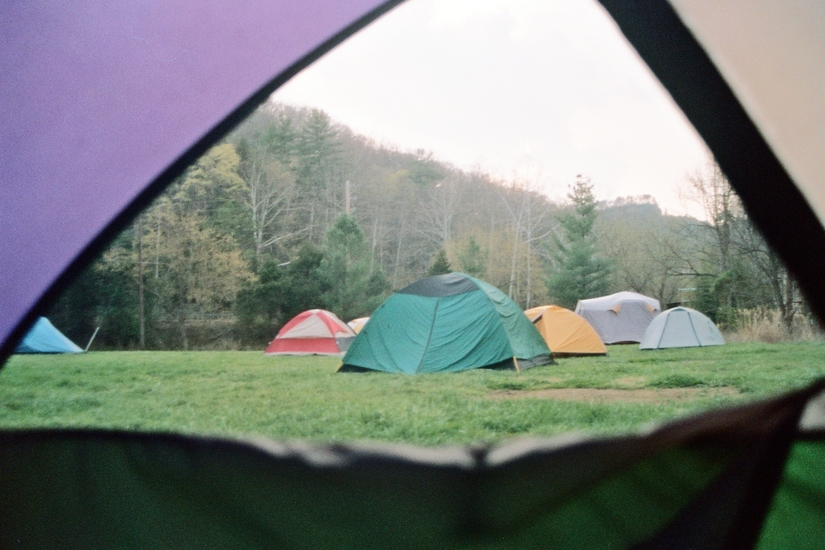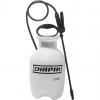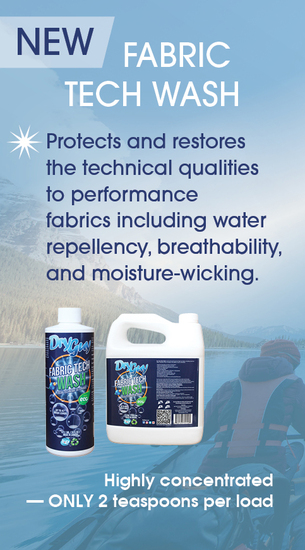Got a camping question? We try to answer as many questions as we can.
Please send us your questions.
If we can't answer it, maybe another camper can. We would love to post your question and any good answers we receive.
Tents come in all shapes and sizes. The right one for you will not necessarily be the right one for someone else. Hence, the wide variety being sold in stores and catalogs. Read our article for more info aboutchoosing a camping tent, its size, features and cost.
Tents are advertised as two man, four man, six man and so on. However, at best this is the maximum number of persons you can cram into the tent for sleeping in close company with no personal gear. This rating method might make sense for backpackers who are traveling light, but it is terrible for all others. A ten by ten foot tent is ideal for two adults. You will have enough space for cots or a double air mattress, plus space to stand up when changing clothes. Read our article for more info about choosing a camping tent, its size, features and cost.
In general, the higher priced tents are made with stronger fabric, stronger poles, and stronger stitching. They will withstand higher winds and heavier rain. They will last longer. A good tent can last for many years. However, not everyone needs this strength and durability. The milder and drier the climate, and the closer to home you camp, the more likely that a less expensive tent will be a very good bargain for you. If you are just starting out in your family camping adventures, and don't know if you will really like camping, then you might want to stick with the least expensive tents. Many families do. It is very likely that you will try your first trips when the weather is warm and dry, and will probably keep close to civilization until you gain some experience and decide whether you like camping or not. You can always upgrade to a better tent later, and keep your original budget tent for when conditions allow. Read our article for more info about choosing a camping tent, its size, features and cost.
Choosing a sleeping bag is next in importance after your tent. Like your tent, your sleeping bag can be one of many types depending mostly on personal preferences and outside temperature. The shape, roominess and fabric feel should be tried just as you would try out a new mattress at home. Sometimes the weather will be warm and dry, so you might not even need a sleeping bag, just a light cover as you would at home. Other times, the cool night air will dictate a warm bag or combination of warm clothes and warm bag. Read our article for more info aboutchoosing a sleeping bag.
There are several ways to make a bag warmer, other than wearing warmer pajamas. One common way is to use a “liner” bag. These bags are placed inside your regular sleeping bag, like adding an extra blanket to your bed. You can buy these bags ready made, or make one by attaching a blanket inside the sleeping bag with safety pins. You can also just throw a blanket over the top of you bag, rather than put it inside. When it is really cold, two summer bags can be used, one inside the other. Temperature ratings are often advertised by manufacturers as 0 degrees, 20 degrees, 40 degrees, etc. Consider these as guidelines only. You may sleep warmer or cooler than someone else. These guidelines seem to assume that you will be wearing warm clothing too. Read our article for more info about choosing a sleeping bag.
Both fuels make good stoves. The best one for you depends on your preference and the type of camping you plan to do. The white gas stoves will product the most heat of any camping stoves. It burns cleanly without any odor or effect on food taste. If you spill the fuel it will evaporate very quickly and will not leave an odor. Propane does not give out as much heat as the white gas stoves, but propane stoves are much easier to use. The propane comes in bottles that are screwed into the stove, not poured into the tank through a small filler spout. All you need to do to start a propane stove is turn on the gas, and light the burner – just like home. There are even propane stoves with built in electronic starters – just like home. This feature makes the transition from cooking at home to cooking at camp easier for most people. Read our article for more about choosing a camping stove, and learn more about the different choices available.
Start the fire by building a small teepee of dry sticks or twigs, and igniting it with a match. If you can’t find very small twigs, add some tinder under the teepee. Newspaper and birch bark make excellent tinder. As the fire gets going, add larger pieces of wood until the fire is the size you want.
Never use gasoline or Coleman Fuel (white gas). These are explosive and can result in great injury. Flammable fluids like charcoal lighter fluid and kerosene are used by some campers. However, always apply the fuel before lighting the fire, and never add fuel to hot coals or after the fire has been lit. Flames can travel up the stream of fluid and into the container causing a very dangerous situation. It is always better to take your time starting the fire with small twigs and tinder, and thus avoid any need for a flammable liquid fuel.
Never leave a fire unattended, and always have water readily available to extinguish the fire properly. Extinguish all fires by pouring water on them, stirring the ashes and pouring more water. Ashes should be cool to the touch before you leave the site. If you have used a prepared fire pit at a campground this will be sufficient. However, if the fire was built on fresh ground, a fire can burn into the soil debris without being detected – until it breaks out when no one is around to put it out. Many forest fires are started by these campfires that someone thought were out. Putting out a campfire built on fresh ground will require lots of water to assure that the ground beneath the fire is thoroughly soaked.
Put a plastic tarp on the ground under the tent. It should match the “footprint” of the tent so that it doesn't gather rainwater. This groundsheet protects the floor of your tent from stones, sticks, and general wear and tear. Keep a whiskbroom in the tent for sweeping out dirt and leaves. Use an old towel or small piece of carpet as a door matt for wiping off feet before entering the tent. Remove your shoes before entering the tent. This helps keep the tent floor and sleeping bags clean.
Maybe not. Your new tent may have performed just as the manufacturer planned. Did you seal the seams before using the tent? The seams on all nylon tents must be sealed before using the tent, and periodically thereafter. Seam sealer is sold in applicator bottles which you rub along the inside of all waterproof seams. It is always wise to set up a new tent at home before your trip. This lets you check its condition, and learn how to set it up without the pressure of darkness or rain at camp. It is also the best time to seal all the seams.
Depending on where you go, ticks can be a problem. Lyme Disease and Rocky Mountain Spotted Fever are carried by ticks in some areas, in addition to some other less common infections. Generally, you must be bitten by the tick and have its bodily juices get into your bloodstream in order to be infected. Avoid tick bites by staying on trails and avoiding grassy, brushy areas. Wear light colored clothing so ticks can be seen. Tuck shirts into pants and pant legs into socks. Do not wear shorts on the trails. Insect repellants containing DEET are known to be effective against ticks as well as other biting insects. If a tick is attached to your skin, grab it with tweezers and remove it. Do not crush the tick's body, as this can force bacteria into your skin. Wash the area thoroughly with soap and water. If you think part of the tick has remained in the skin, or if you think the tick has been attached for longer than 48 hours, seek medical attention. Be alert to a subsequent fever or skin rash. Report these to the doctor.
One good idea is to provide each child with a flashlight. To prevent any arguments, make sure each one has their own. Children love to play with the flashlights, and having one also will make them more at ease after dark. Flashlights are also handy when making trips to the restroom, for making shadow puppets on tent walls and for reading before bed.
The more you camp, the more efficient you will become. Plan and prepare ahead of time so cooking and camp chores are as simple as possible. Plan a simple and filling menu. One or two pot meals are best for camping. Meals that can be cooked at home ahead of time, and travel well in a cooler, will save a lot of time especially on the first night of your trip. Precooked meats will also last longer in the cooler than raw meats. Paper plates and cups can also save time. Make your cookout a family activity. Bring along food that the whole family can participate in cooking like hotdogs on a sharpened stick or even potatoes that the kids can help peel. And don't forget the marshmallows and “s'mores.” Use Aluminum Foil for making packet meals. Just wrap up some sliced potatoes, onions, carrots, zucchini, salt & pepper, and a little butter, seal the ends well, and lay it on the grill to roast.
One cannot predict the weather very well, and every weekend will not be sunny and warm. Nevertheless, lots of campers come prepared and can enjoy a bit of rain. There are a few things you can do to make rain into just another one of those things that you experience and conquer when camping. I suggest you use a rain fly. This is a large tarp that is erected over the picnic table for shelter from sun and rain. Avoid those with a pole in the center. That's where you'll want to put the table. Instead, get one with a ridgepole. Always securely stake down the rain fly to keep it stable in the wind, even if it is calm when you set it up. Wind has a habit of rising up in the middle of night during a thunderstorm. If you secured it right, you can avoid getting out of bed to check on it during the storm. Also, remember that children get cold faster than adults. The key to comfortable camping is to dress them in several layers, which can be peeled off as they get warm and added on as they cool off.



















Comments